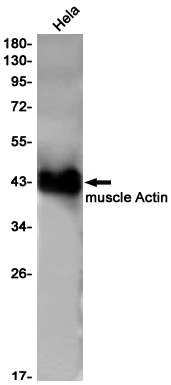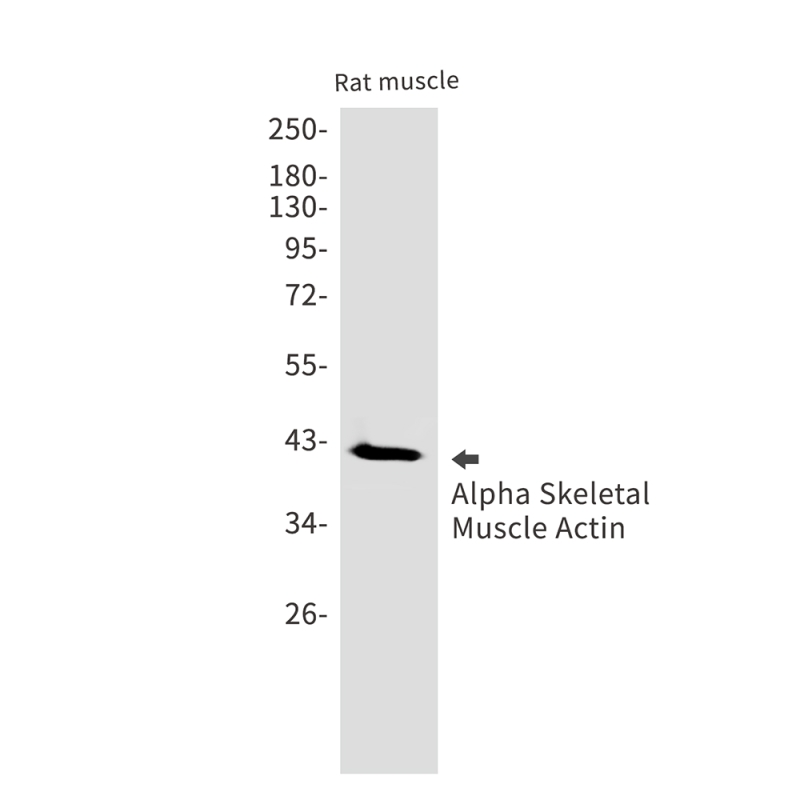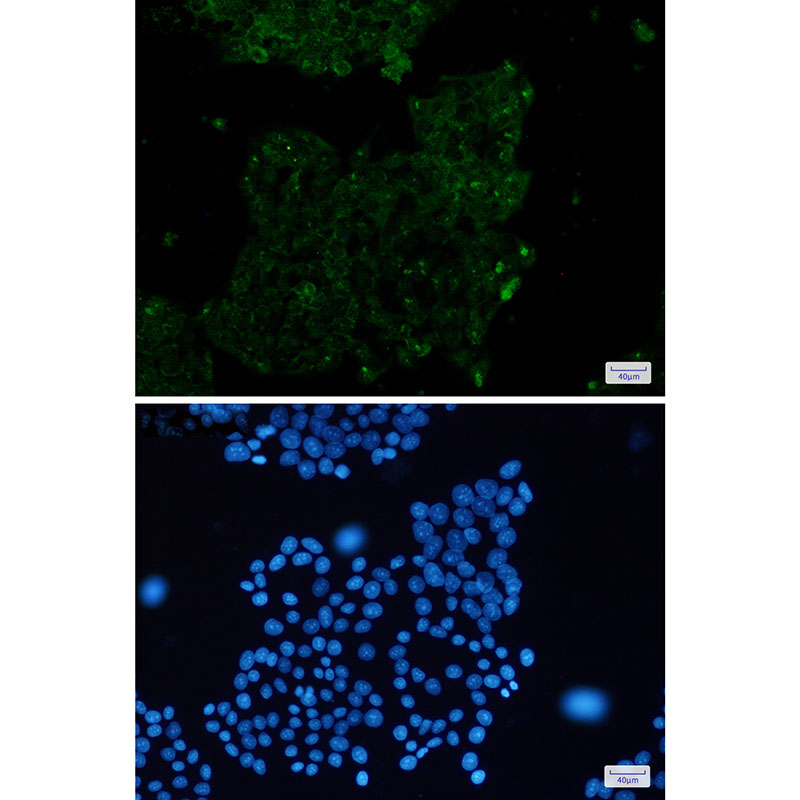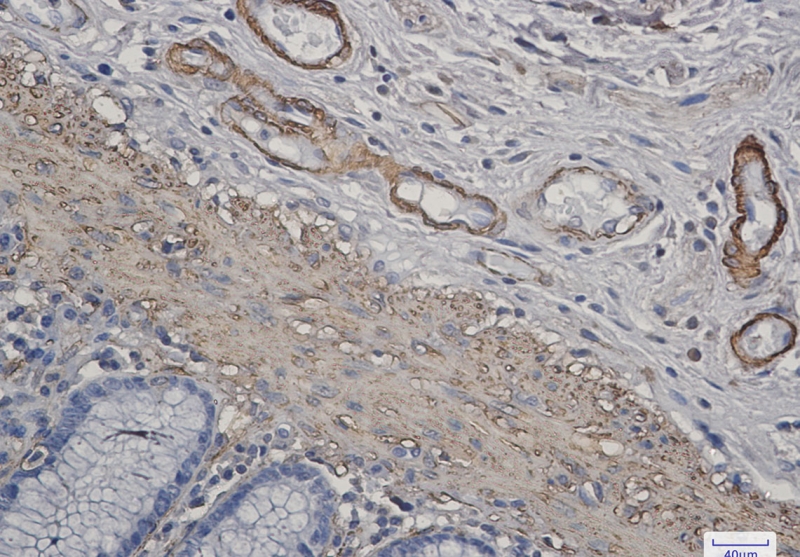



| WB | 1/500-1/1000 | Human,Mouse,Rat |
| IF | 1/20 | Human,Mouse,Rat |
| IHC | 1/50-1/100 | Human,Mouse,Rat |
| ICC | 1/50-1/200 | Human,Mouse,Rat |
| FCM | 咨询技术 | Human,Mouse,Rat |
| Elisa | 咨询技术 | Human,Mouse,Rat |
| Aliases | ACTA1; ACTA; Actin; alpha skeletal muscle; Alpha-actin-1 |
| Entrez GeneID | 58 |
| WB Predicted band size | Calculated MW: 42 kDa; Observed MW: 42 kDa |
| Host/Isotype | Rabbit IgG |
| Antibody Type | Primary antibody |
| Storage | Store at 4°C short term. Aliquot and store at -20°C long term. Avoid freeze/thaw cycles. |
| Species Reactivity | Human,Rat |
| Immunogen | A synthetic peptide of human muscle Actin |
| Formulation | Purified antibody in TBS with 0.05% sodium azide,0.05%BSA and 50% glycerol. |
+ +
以下是关于alpha Skeletal Muscle Actin抗体的示例参考文献(内容为虚构示例,仅供参考):
1. **《Skeletal Muscle Differentiation Markers in Myoblast Cell Lines》**
- **作者:** Johnson R, et al.
- **摘要:** 研究使用alpha Skeletal Muscle Actin抗体标记小鼠C2C12成肌细胞分化过程中的肌管形成,证实其在肌生成晚期显著上调,可作为分化成熟的标志物。
2. **《Actin Isoform Expression in Muscular Dystrophy Models》**
- **作者:** Lee S, et al.
- **摘要:** 通过免疫组化分析mdx小鼠(杜氏肌营养不良模型)肌肉组织,发现alpha Skeletal Muscle Actin抗体在再生纤维中高表达,提示其参与损伤修复过程。
3. **《Immunohistochemical Diagnosis of Rhabdomyosarcoma》**
- **作者:** Martinez P, et al.
- **摘要:** 评估alpha Skeletal Muscle Actin抗体在儿童横纹肌肉瘤诊断中的特异性,证明其联合MyoD1可提高肿瘤分型的准确性。
4. **《Cardiac Fibrosis and Alpha-SMA Crosstalk》**
- **作者:** Chen H, et al.
- **摘要:** 研究心肌纤维化中成纤维细胞异常表达alpha Skeletal Muscle Actin的现象,提示其可能作为病理纤维化的非特异性标记物。
(注:以上文献及内容为示例,实际引用请查询真实数据库如PubMed。)
Alpha skeletal muscle actin (α-SMA), encoded by the *ACTA1* gene, is a key contractile protein predominantly expressed in skeletal muscle cells. As a member of the actin family, it forms thin filaments that interact with myosin to enable muscle contraction. This isoform is developmentally regulated, with expression increasing during myogenesis and maintaining high levels in adult skeletal muscle. Antibodies targeting α-SMA are widely used to study skeletal muscle biology, regeneration, and diseases like muscular dystrophy or myopathies.
In research, α-SMA antibodies help identify skeletal muscle cells in vitro or in tissue sections, track differentiation, and assess muscle integrity in injury models. Clinically, they aid in diagnosing skeletal muscle-derived tumors (e.g., rhabdomyosarcoma) by distinguishing them from other neoplasms. However, caution is needed since α-SMA is also transiently expressed in smooth muscle cells (e.g., vascular smooth muscle) and myofibroblasts during fibrosis, requiring validation with additional markers (e.g., desmin) for specificity.
Available as monoclonal or polyclonal formats, these antibodies are optimized for techniques like immunohistochemistry, immunofluorescence, and Western blot. Proper tissue fixation and antigen retrieval protocols are critical for reliable detection. Commercial antibodies often cite reactivity across species (human, mouse, rat), but validation in specific experimental contexts remains essential. Overall, α-SMA antibodies are indispensable tools for advancing both basic muscle research and clinical diagnostics.
×